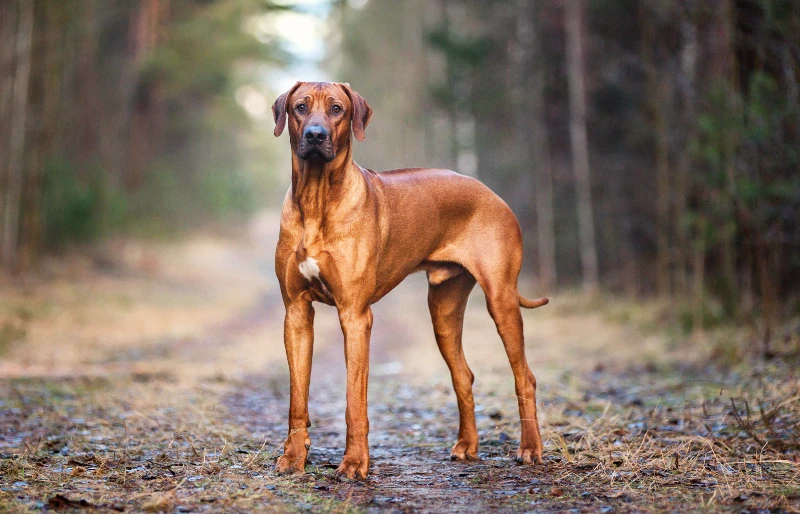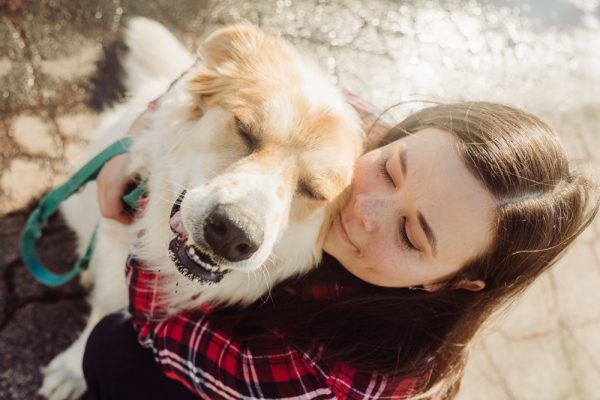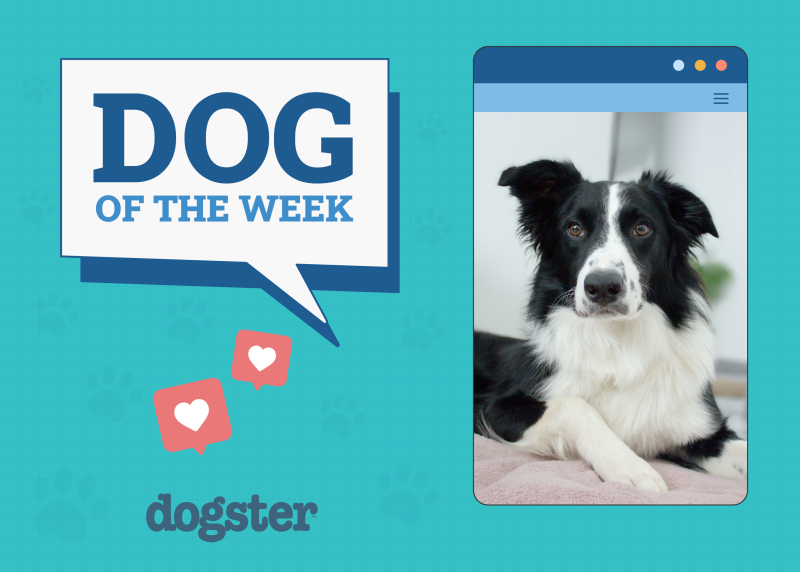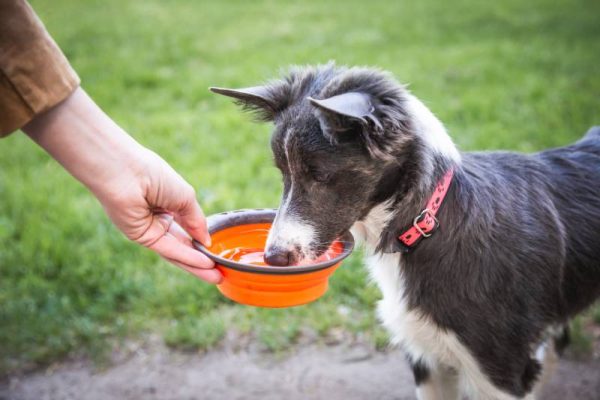The Rhodesian Ridgeback is an exotic dog breed bred in Africa to track lions, and they make courageous, loyal companions for nearly anyone today too. However, like with any dog breed, you need to find out the pros and cons of their unique personalities to see if they mesh with your lifestyle and what you’re looking for in a dog. Let’s take a look below at some of the most notable pros and cons of welcoming a Rhodesian Ridgeback into your home down below.

Pros of Having a Rhodesian Ridgeback
Little-known in the US, the Rhodesian Ridgeback makes a great pet for active households with experienced pet owners. From their devoted loyalty to their low-maintenance coat, read on below for all the best parts of owning a Rhodesian Ridgeback.
1. Loyalty
Bred to track lions in unforgiving conditions, the Rhodesian Ridgeback develops unbreakable bonds with their owners and family. That makes them excellent guard dogs that are beefy enough to deter intruders, with a very deep, menacing bay that would intimidate any stranger. Their innate guarding nature makes them excellent for roaming on farms or open properties, or as alert family watchdogs.
2. Intelligence
The Rhodesian Ridgeback was also bred for their whip-smart intelligence, and they excel at obedience, hunting, and advanced agility courses alike. Some notable progenitors include Mastiffs, Great Danes, and Greyhounds, all known for their intelligence. After their lion hunting career ended, Ridgebacks quickly adapted to herding large livestock herds in northern Africa.
They know they’re smart, too, which makes training them an adventure that calls for patience. Like other large, smart dogs, the Rhodesian Ridgeback has been known to open doors and play Houdini, but they’re keenly in tune with their family as well.
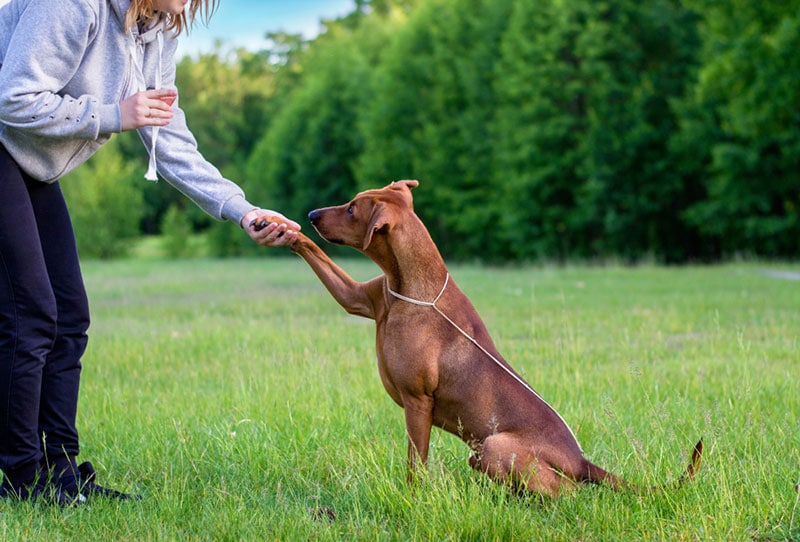
3. Fearlessness
These courageous sighthounds were bred from African hounds with European hounds to become the ultimate lion tracker. They would track and even corner lions with their deep bay for hours at a time while hunters caught up. Today, that fearlessness means they’ll stand up to coyotes, raccoons, and possibly larger predators like bears or mountain lions. They don’t back down from a challenge and aren’t easily intimidated by any means.
4. Easy to Groom
Rhodesian Ridgebacks are perhaps best known for their solid red to gold coats, especially the ridge of backward-growing fur along their spines. While not hypoallergenic by any means, Ridgebacks are low shedders that only require a regular brush every week or two to remove dead hair. Other than that, a monthly bath will help your Ridgeback look their best and stay squeaky clean.
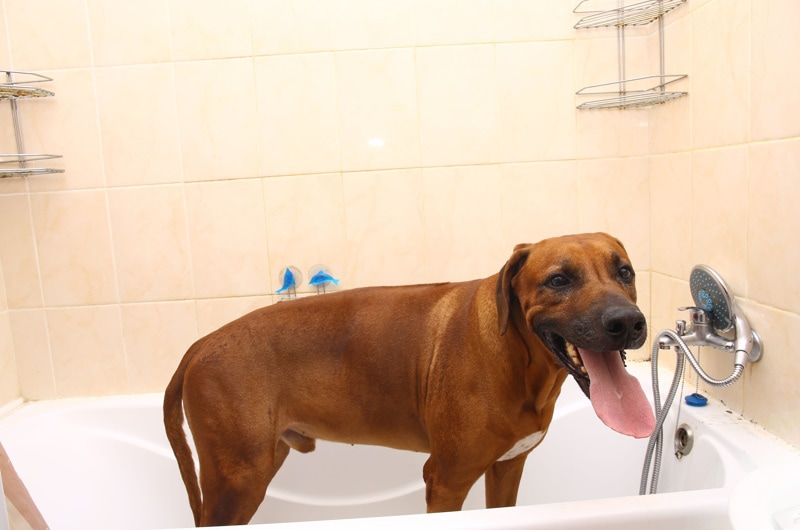

Cons of Having a Rhodesian Ridgeback
Like any dog, Rhodesian Ridgebacks have some notable drawbacks that can make them unsuitable for your home or lifestyle. From a stubborn streak to destructive boredom, let’s discuss some of the worst things about Rhodesian Ridgebacks below.
1. Require Firm Handling
The Ridgeback’s natural fearlessness can make them challenging for new pet owners, which is why some experience is ideal before adopting one. They test your boundaries and can become pigheadedly stubborn, requiring strict boundaries and training. This makes them not so great for small kids, either, who can trigger their herding or guarding instincts.
2. Need Lots of Exercise
Rhodesian Ridgebacks are extremely athletic dogs that need 2 or more hours of vigorous exercise every day, so you’ll need access to a secure yard or dog park for them to run and play. Active households are a must, as bored Ridgebacks become rowdy Ridgebacks. They can shred furniture, dig vast holes across your yard, or chew up all your favorite shoes. In addition to regular exercise, we recommend supplementing with treats and puzzle toys, like snuffle mats and Kongs, to keep their minds occupied during prolonged stretches inside.
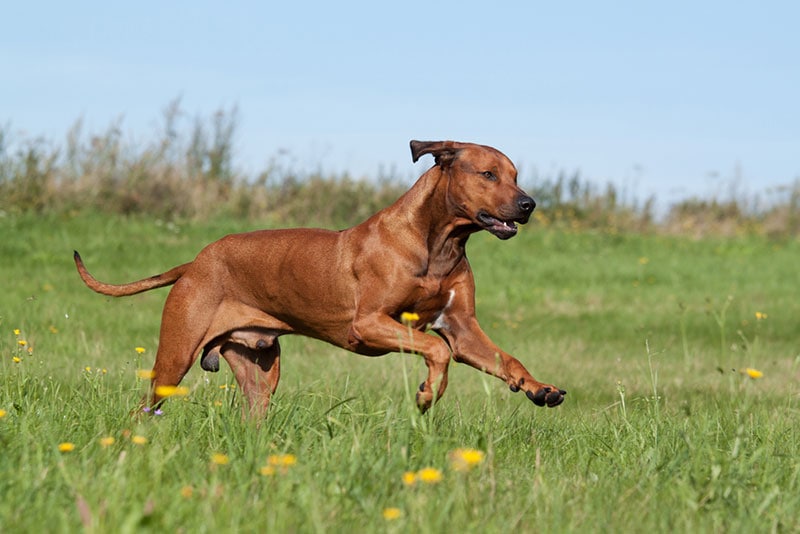
3. Strong Prey Drive
Despite being largely used for big game like lions, Rhodesian Ridgebacks were used to flush birds plus fight medium-sized animals like pigs and baboons. They have an overall high prey drive toward small animals and make poor roommates for cats. Ridgebacks can be socialized from a young age to get along well with all types of dogs but can become jealous or territorial in some instances.
4. Naturally Suspicious
Although laid back with you, Ridgebacks are naturally skeptical of strangers and especially strange animals. They need heavy socialization from a young age to avoid becoming fearful or anxious when encountering new people and places. Needless to say, Ridgebacks need to be leashed by default to help suppress their prey drive, but obedience training is essential too.
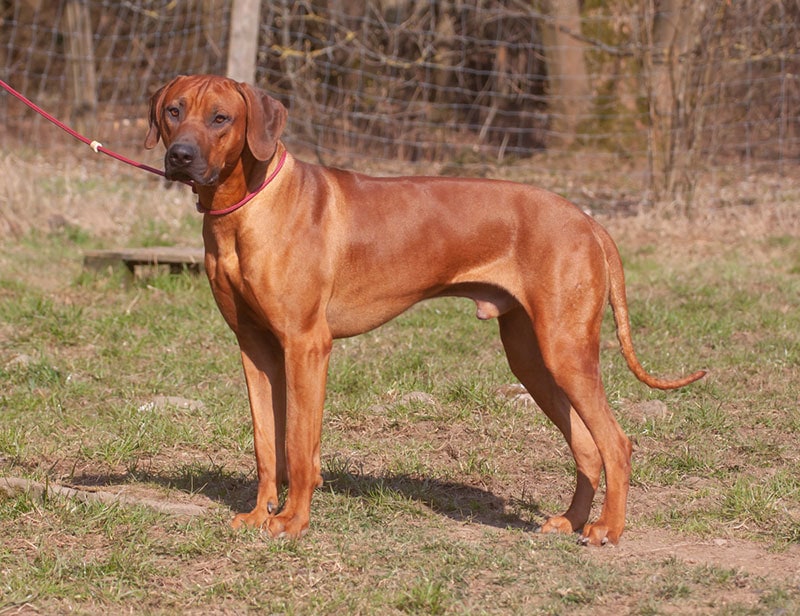

Final Thoughts
Rhodesian Ridgebacks are a unique hunting breed that fits well in active households that don’t have small kids or pets other than dogs. They’re lap dogs that want to be with you at all times, whether that’s hiking or just playing fetch in the yard, but they need heavy socialization to become a true family dog.
Featured Image Credit: Osetrik, Shutterstock
